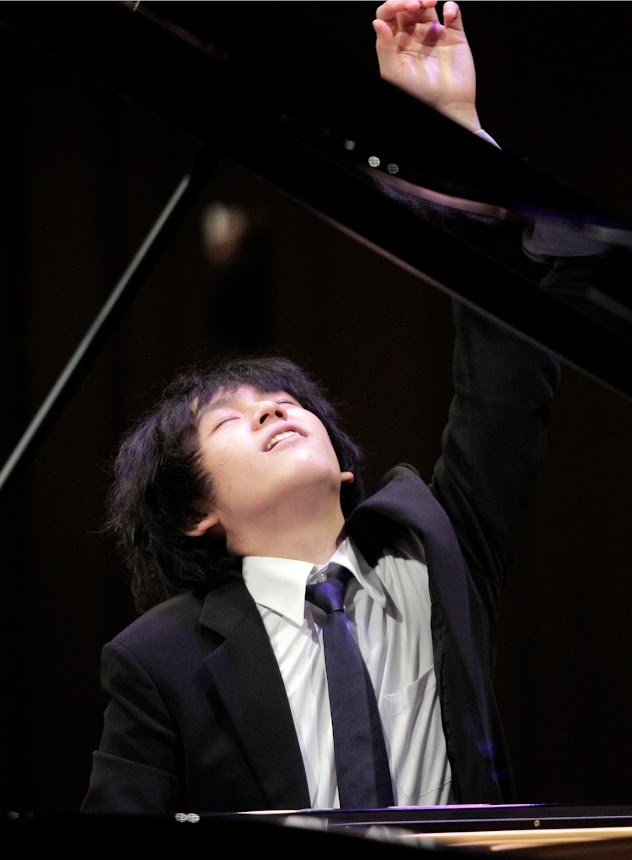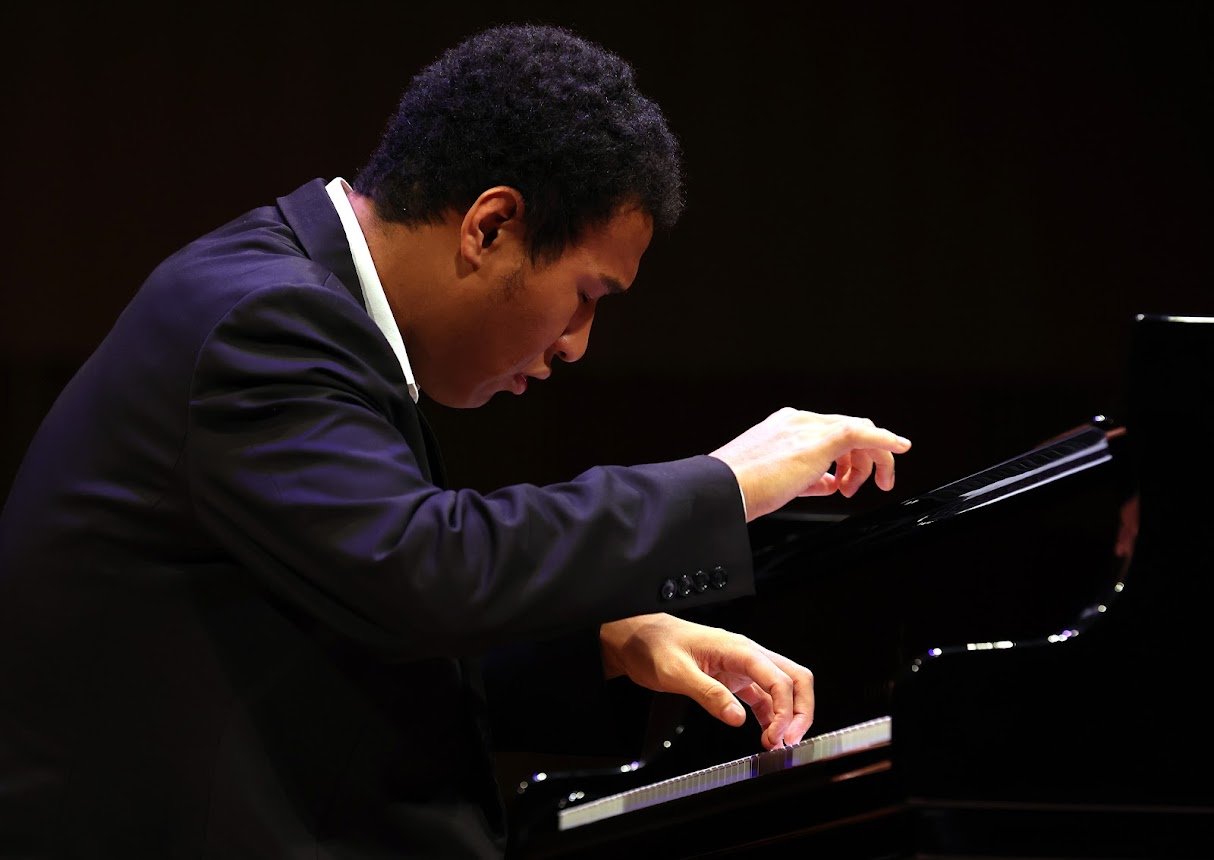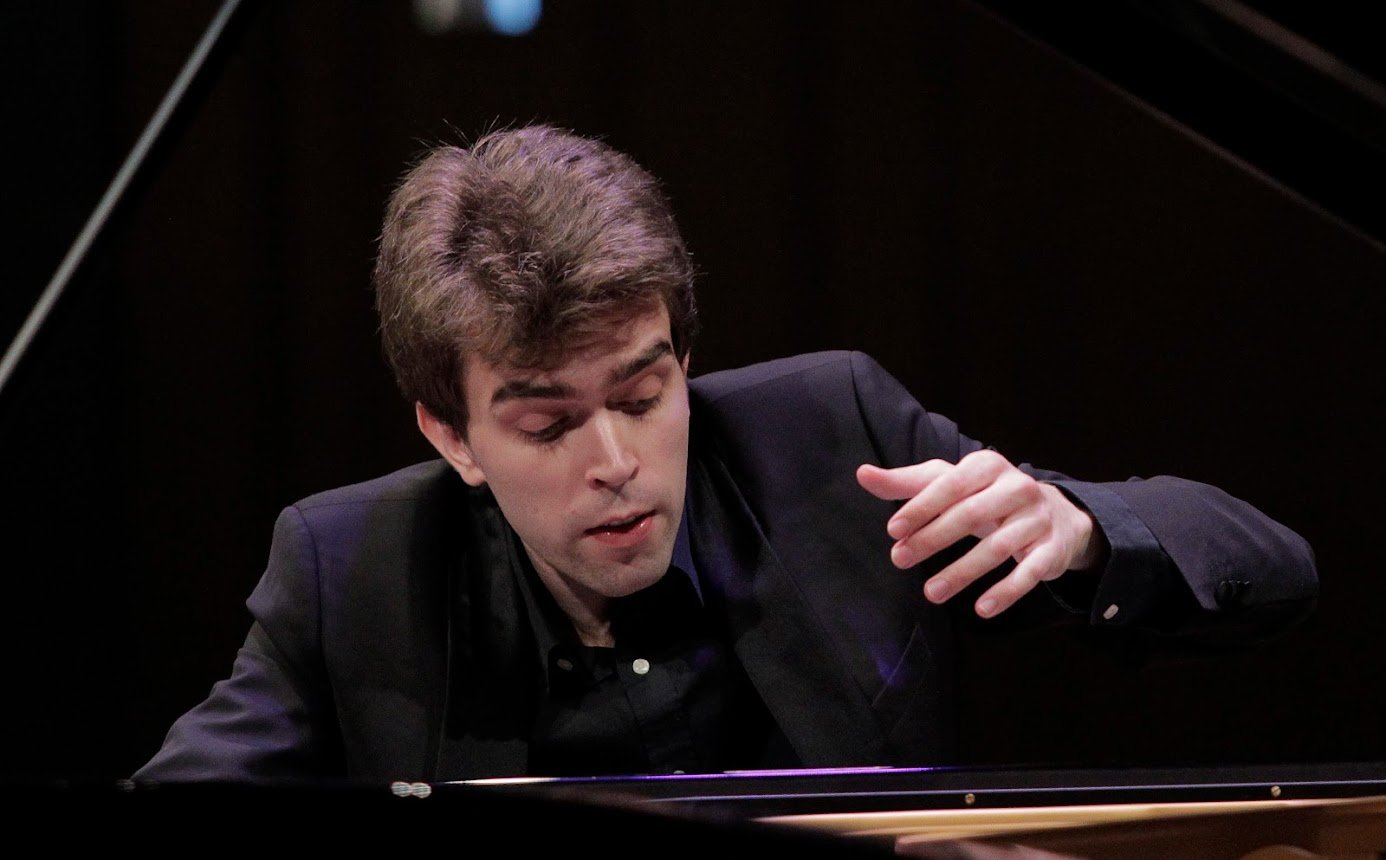Cliburn Competition: Quarterfinal Recital 2, June 5, 2022
—Wayne Lee Gay
The brilliant passage-work of Bach's Chromatic Fantasia and Fugue in D minor, performed by 21-year-old Japanese pianist Masaya Kamei, opened the Sunday afternoon quarterfinal session, as Kamei brought Bach’s eighteenth-century harpsichord work into the twenty-first century as a sleek Romantic showpiece for the modern concert grand piano. A very light, expert pedal lent a luminous aura to the opening passage; Kamei continued his generally fine technique, but lapsed into slight over-pedaling in the otherwise grandly presented fugue.
In an intriguingly timely coincidence, almost certainly unpremeditated, Kamei followed with Liszt's "Mazeppa" Etude, inspired by a poem by Victor Hugo about a Ukrainian national hero who, in the Middle Ages, led the movement to throw off Russian domination. Liszt threw triple technical threats into this one, with wide leaps, extended fast octave passages, and rapid arpeggios, all of which Kamei accomplished nicely. He closed what was essentially an all-Romantic program (considering his approach to Bach) with Rachmaninoff's Sonata No. 2 in the 1931 version. This extended multi-movement work requires emotional maturity and a sense of broader structure along with the predictable technical demands; Kamei met the challenge.
American Clayton Stephenson, 23, the second pianist of the day to opt for the New York Steinway over the Hamburg instrument, opened with a gorgeously mellow rendition of the Prelude from Ravel's Le tombeau de Couperin, creating a smooth pillow of sound via a combination of the soft pedal, judicious pressure on the damper pedal, and a skillful touch.
Liszt's Ballade No. 2 in B minor, less massive but very much akin to the same composer's massive Sonata in B minor, provided a superb showpiece for Stephenson's wide range of expression, including a volcanic musical climax. Stephenson closed with Prokofiev's Sonata No. 7, explosive in the outer movements and intense in the slow middle movement, inducing a cheering ovation.
While variation cycles played a large role in the morning session, all three competitors in the afternoon session offered substantial multi-movement sonatas. Spanish-Dutch pianist Albert Cano Smit, 25, performing on the Hamburg Steinway, opened with Beethoven's "Tempest" Sonata No. 17 in D minor. Cano Smit conquered the timing and pacing demands in this dramatic work from Beethoven's middle period, and also achieved some glorious contrasts of light and dark in the opening storm movement.
After Beethoven, Cano Smit moved farther along in the romantic era with Scriabin's light-filled, proto-modernist "Poem," followed by the same composer's more traditionally romantic Etude in C-sharp minor form Opus 2. Thence to two Etudes of Gyorgy Ligeti, beginning with "White on White" from 2001, which opens with a deceptively lean texture for two contrapuntal voices (all on the white keys), then moves into a rapid-fire middle section. Cano Smit closed with the third performance in the competition so far of Ligeti's "The Devil's Staircase," an effective showpiece with brutal technical demands.


